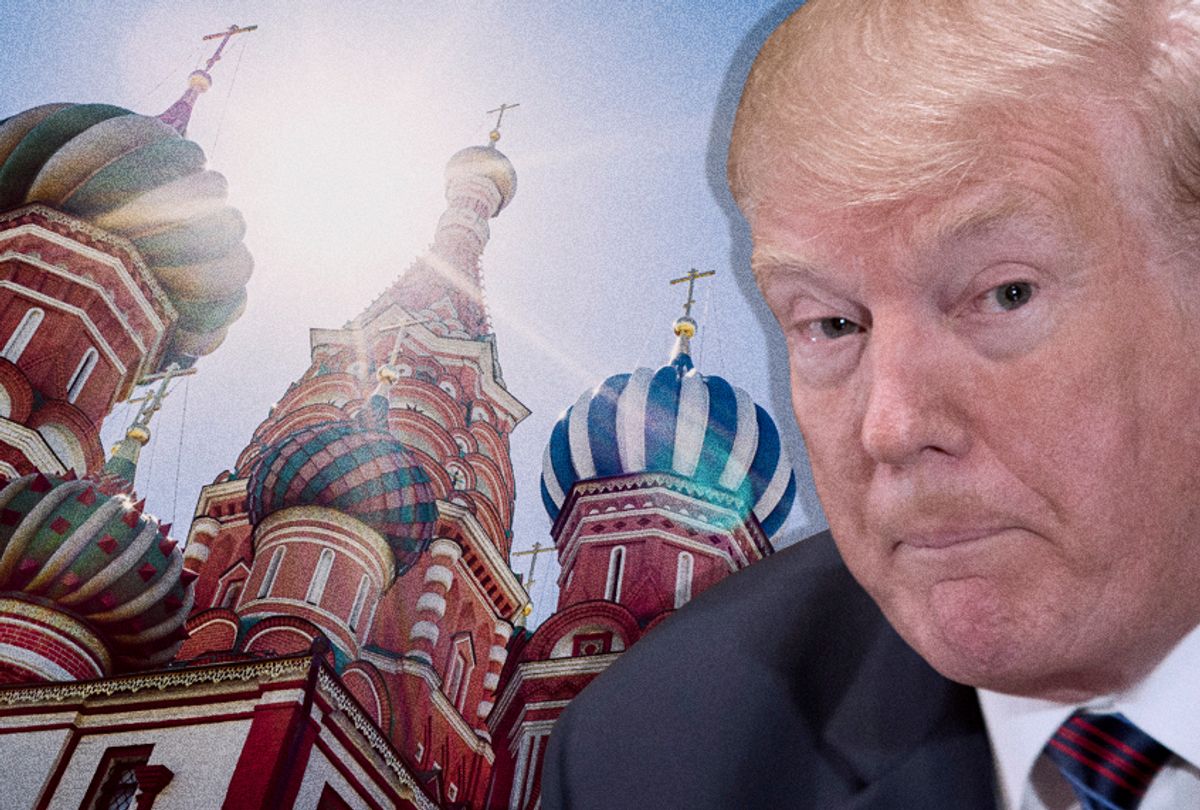President Donald Trump signed a letter of intent to move forward with negotiations to build a Trump-branded skyscraper in Russia during the 2016 presidential election. Rudy Giuliani, one of the president's personal lawyers, has claimed that the document was never signed.
CNN's Chris Cuomo obtained a copy of the signed letter of intent that set the stage for negotiations for the Trump Tower Moscow project, which ultimately fell apart. The letter is dated Oct. 28, 2015, and it contains the now president's signature.
Giuliani on Sunday incorrectly told CNN's Dana Bash that the letter had not been signed. "It was a real estate project," the former mayor of New York City told Bash. There was a letter of intent to go forward, but no one signed it
The non-binding document is also signed by Andrey Rozov, owner of I.C. Expert Investment Co., the Russian firm that would have partnered with the Trump Organization on the project.
Giuliani also claimed on Sunday that Trump knew that Cohen was working on the real estate project later than January 2016, and that the discussions may have gone as far as the tail end of the general election period.
"According to the answer that he gave, it would have covered all the way up to November of — covered all the way up to November 2016," Giuliani told ABC, seemingly referencing Trump's written responses to questions from the special counsel.
The luxury real estate development is at the center of a plea deal that Trump's former personal lawyer Michael Cohen reached last month with special counsel Robert Mueller, who is investigating allegations of collusion between Trump's presidential campaign and the Russian government. Cohen pleaded guilty to lying to Congress about his contacts with Russia during the 2016 presidential campaign — specifically his efforts to build a Trump Tower in Moscow.
In July 2016, when he was campaigning for president, Trump claimed to the American public that he had no business interests in Russia. But, Cohen admitted in federal court on Thursday that he was pursuing a Trump real estate deal at the same time on behalf of the then-presidential candidate. He also revealed that Trump was personally aware of the deal, signing a letter of intent and discussing it with Cohen on two other occasions.
"No, I have nothing to do with Russia," Trump told reporters at the time. "How many times do I have say that? I have nothing to with Russia. I have nothing to do with Russia."
"There were developers in Russia that wanted to put a lot of money into developments in Russia," he added. "And they wanted us to do it, but it never worked out."
Court documents reveal that Cohen made the false statements to "minimize links between the Moscow Project and [Trump]" and "give the false impression that the Moscow Project ended before 'the Iowa caucus and . . . the very first primary'" in an effort to limit Mueller's ongoing investigation into allegations of collusion between Trump's presidential campaign and the Russia.
Meanwhile, Trump has claimed that his business dealings were "very legal" and "very cool" after Cohen pleaded guilty to lying to Congress about his efforts to build a Trump Tower in Moscow. He also previously told reporters, "When I'm running for president – that doesn't mean I'm not allowed to do business." He added that Cohen is "a weak person and not a very smart person" and that his company's plans in Moscow was "a well-known project," which he ultimately aborted.
CNN reports that the real estate project under discussion, which never came to fruition, would have given Trump's company a "$4 million upfront fee, no upfront costs, a percentage of the sales and control over marketing and design." The deal also reportedly gave Trump's company the option to name the hotel spa after Ivanka Trump, the president's eldest daughter and a senior White House adviser.
Cohen was sentenced to three years in prison last week for his role in buying the silence of women who alleged affairs with the future president during the 2016 presidential election. Trump has denied the affairs. Cohen also pleaded guilty to financial crimes, campaign finance violations and lying to Congress.
Cohen, who was previously one of the president's most loyal and ardent defenders in business in politics, indicated earlier this year that his loyalty to Trump might be wavering as he vowed to "put family and country first" by cooperating with prosecutors. His decision to cooperate with Mueller has made him arguably one of the most key witnesses against his former boss — and the special counsel's office, for its part, appears to view Cohen as a valuable cooperator who can highlight Trump's business dealings as Mueller continues to probe any connection the president has to Russia.



Shares